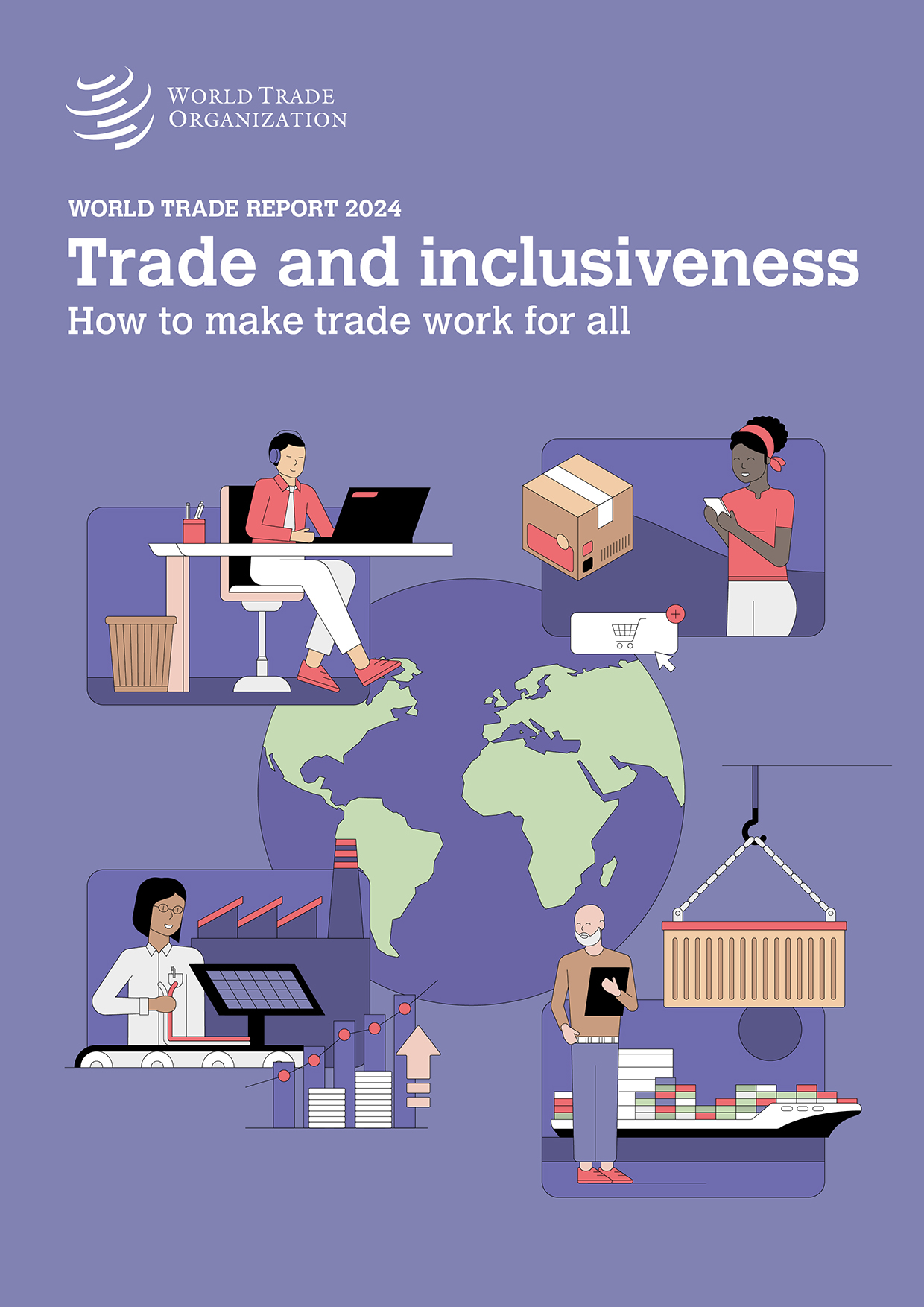- Home
- Books
- World Trade Report 2024
- Chapter
Trade and inclusiveness within economies

- By: World Trade Organization
- Source: World Trade Report 2024 , pp 66-95
- Publication Date: September 2024
- DOI: https://doi.org/10.30875/9789287076717c006
- Language: English
Trade has raised aggregate welfare and reduced poverty without necessarily raising inequality in many economies, but the impact of trade is more complex for individuals. People may benefit from cheaper prices, larger variety and export opportunities, but they may also face increased competition and may, therefore, either gain or lose from trade. This chapter reviews why, although most people gain from trade, some suffer losses. These losses can be aggravated by distortions and barriers, such as mobility costs or monopolies, that tend to impact more vulnerable groups disproportionately, and may prevent them from adjusting to import competition and accessing export opportunities. The chapter also examines why using restrictive trade policy to redistribute gains from trade is often unsuccessful and can have unintended consequences, such as retaliation by trade partners. In contrast, domestic policies, such as education and social protection, are more effective in addressing inequality. Their importance is likely to grow as the digital revolution, climate change and geopolitics continue to shape the distributional impacts of trade.
-
From This Site
/content/books/9789287076717c006dcterms_subject,pub_countryId-contentType:WorkingPaperSeries -contentType:Periodical -contentType:BookSeries -contentType:ReportSeries105


